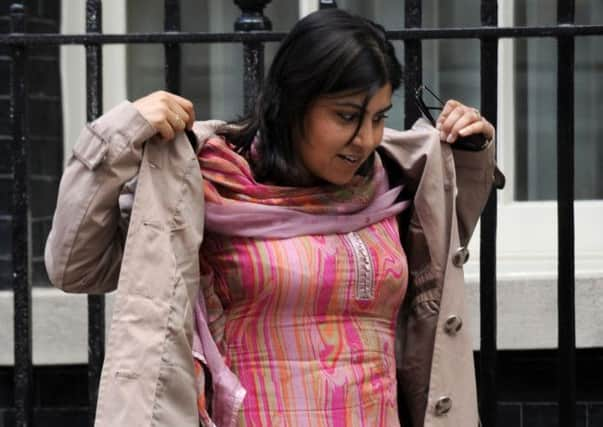Muslim peer in Middle East radicalisation warning


Baroness Warsi’s criticism put the Government on the back foot as Conservative colleagues voiced their support including London mayor Boris Johnson who described Israel’s actions as “disproportionate” - a word Ministers have refused to use.
In her resignation letter the Yorkshire peer said the Government’s failure to take a tougher line over Israel’s actions was “morally indefensible”.
Advertisement
Hide AdAdvertisement
Hide AdAnd in a stark warning she added that the UK’s stance could become “a basis of radicalisation” with consequences “for years to come”.
In a statement last night she said: ““Over the last four weeks I have done all I can, both at formal meetings and informal meetings, trying to convince my colleagues that our current policy on Gaza is morally indefensible, it’s not in our interests, it’s not in British interests, and that it will have consequences for us both internationally and here at home.
“But in the end I thought the Government’s position was not moving and so I had to, on a point of principle, resign.”
Her intervention is particularly damaging coming from the first Muslim woman to sit in Cabinet and someone who Mr Cameron made co-chairman of the Conservative Party as he tried to improve its appeal to Britain’s ethnic minority communities.
Advertisement
Hide AdAdvertisement
Hide AdAnd while attention focused on her criticism of Mr Cameron’s Middle East policy, her letter also expressed concern at the absence of senior figures in Government in during the crisis following the Cabinet reshuffle which saw ministers such as Ken Clarke and Dominic Grieve replaced by younger MPs.
There was also veiled criticism of new Foreign Secretary Philip Hammond as she praised the work of his predecessor, Richmond MP William Hague, but spoke of “great unease” in the Foreign Office about the way “recent decisions” have been made.
Her decision to stand down from her Foreign Office post took Downing Street by surprise with the peer not consulting with the Prime Minister before announcing her move.
Mr Cameron expressed sadness at her resignation but senior figures reacted angrily.
Advertisement
Hide AdAdvertisement
Hide AdChancellor George Osborne was scathing about her decision to leave, just as a humanitarian ceasefire between Israel and Hamas finally appeared to be holding.
“This a disappointing and frankly unnecessary decision.
“The British Government is working with others in the world to bring peace to Gaza and we do now have a tentative ceasefire which we all hope will hold.”
Mr Hammond said: “I do find it rather surprising that she has chosen now, this particular moment, to take this step when, in fact, we are now at long last seeing some relief, seeing some progress on the issues about which she was so passionately concerned.”